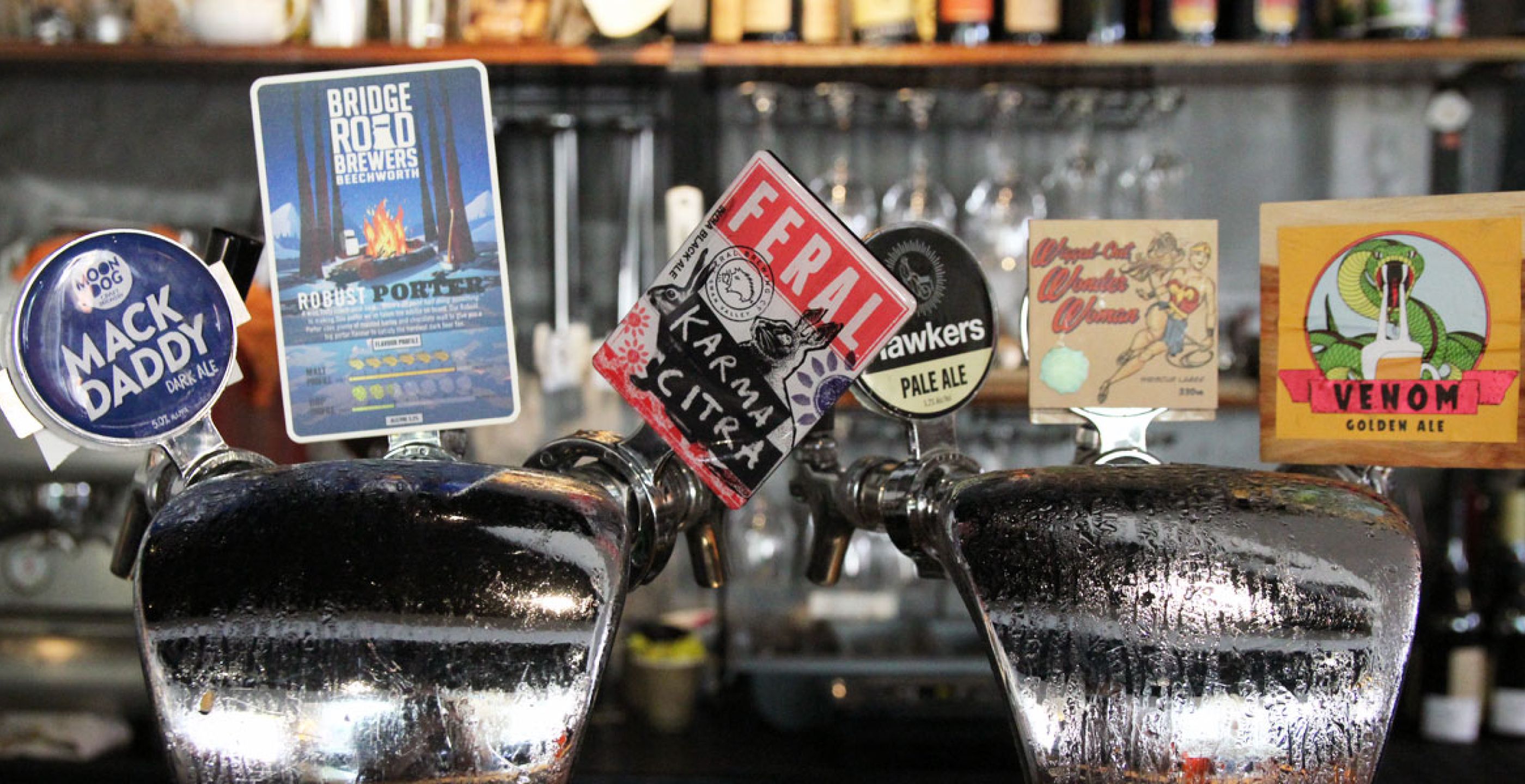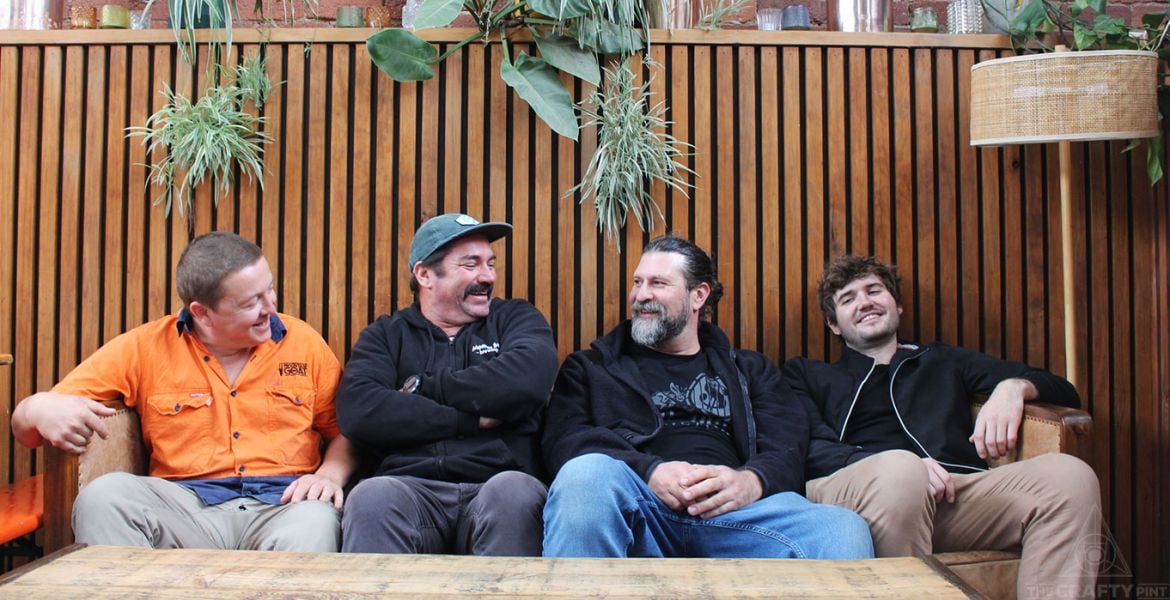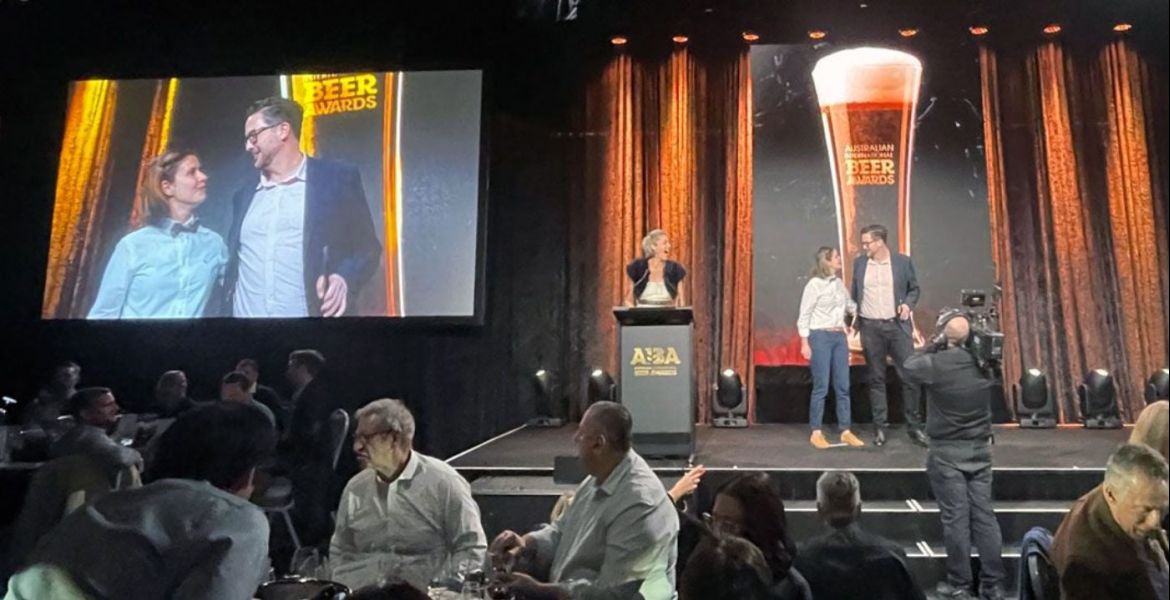Australia's small and independent brewers today voted "overwhelmingly" to remove large brewers from their national trade body in a move that has been widely expected for the past few months. It means that what was the Craft Beer Industry Association (CBIA) becomes the Independent Brewers Association.
The decision was confirmed at a meeting this morning in Melbourne, at which it was announced that more than the required 75 percent of members voted in favour of the move. It means that no brewing company more than 20 percent owned by a large brewery or other businesses that hold significant brewery holdings in Australia or overseas is eligible for membership. The upper limit on size is set at 40 million litres per annum.
In practical terms, this means brewing companies including Mountain Goat (Asahi), Matilda Bay (CUB/AB InBev), Little Creatures, Malt Shovel and White Rabbit (all Lion/Kirin) can no longer become members. Anticipating the move in March, Lion issued a statement from Chuck Hahn announcing its craft brands were quitting the association.
CBIA chair Peta Fielding, who is also a co-owner of Burleigh Brewing, told The Crafty Pint: "It's about an industry association representing businesses that need it. It's pretty clear that the big guys don't need us lobbying on their behalf. It's laughable."
She added: "We had to draw the line somewhere. No matter where we put that line, we all [as members] had to come to a point where we agreed. We started to take the approach that we can't define a place that will work for every single scenario for eternity. If in ten or 20 years time that line isn't appropriate then the board at the time can look at it again."
Driving the current move was a consensus within the association that larger breweries have the "size, scale and capital" to be able to influence the market whereas smaller, independent breweries would need to work together in order to do so.
Now that they have struck out on their own, the IBA's initial focus will be fourfold:
- Presenting a unified voice for small, independent Australian breweries
- Delivering results through advocacy on issues such as market access, excise and licensing issues
- Education
- Delivering value for members through relationships with the association's sponsors
"[On issues like] market access, there's always been mixed messages," said executive officer Chris McNamara. "Now we can really prosecute the case."
Today's move is also likely to see a number of breweries that either never joined CBIA due to opposition to its original membership structure or who dropped out over the issue become members of the new look body.
"In the five years [since the CBIA was initially formed], there has been a lot of change in the marketplace and it probably was right to step back and look at this," added Peta. "As a board we went back to the membership base to understand is this the broadly held view or a few noisy voices and overwhelmingly the sense we got back was it's time to have a discussion."
That discussion led to a proposal being put to members and, ultimately, to today's vote. UPDATE: The result of the vote was 134 in favour, two against.
"It was a really difficult path to tread," she added. "We're very lucky there's a camaraderie and respect and sharing of knowledge [in the industry] which is pretty special. We wanted to make sure this process didn't put any of that into jeopardy. There's still that absolute respect and love for the people in the industry."
Describing the craft beer industry as "a shining light in Australian manufacturing", a statement announcing today's move highlighted that there are now more than 400 small, independent brewing businesses in Australia, up from just 200 when the association began five years ago, and that the industry directly employs more than 2,100 people and generates an estimated $655 million in economic output.
Acknowledging "the significant contributions the larger brewers made as founding members of the Craft Beer Industry Association”, Peta told The Crafty Pint that, following today's vote: "It feels much clearer as to who we are representing and what we can do."
As the beer industry becomes ever more competitive, complex and challenging, members will no doubt be looking forward to seeing what this clarity of purpose delivers for Australia's small, independent producers and those who support them.
















